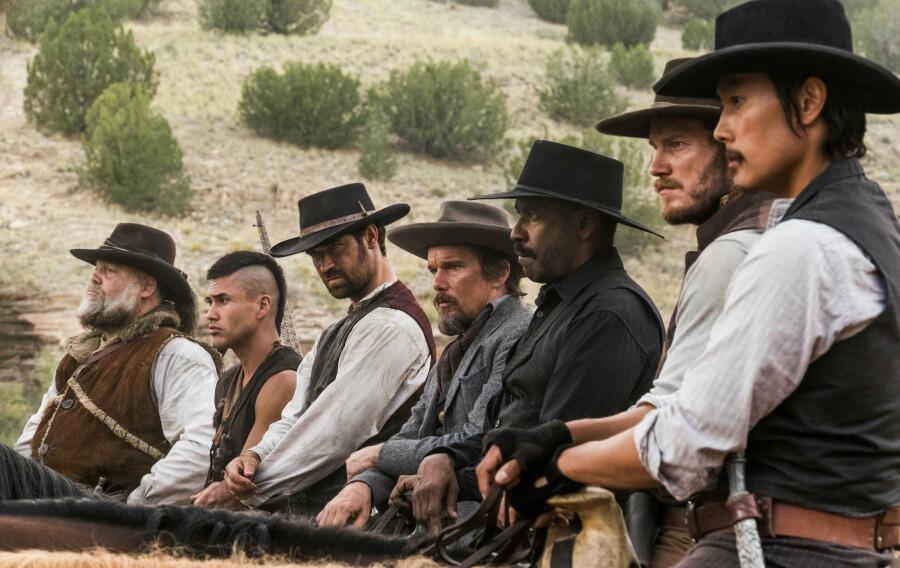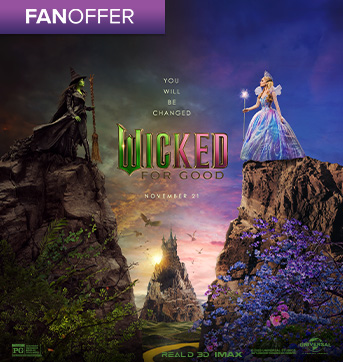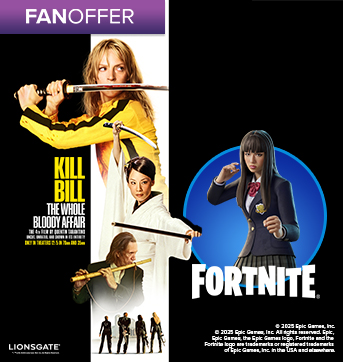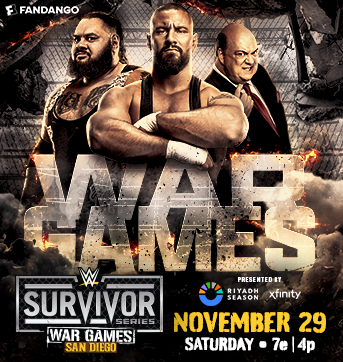
Filmmakers will look almost anywhere for inspiration, but for Magnificent Seven director Antoine Fuqua, inspiration came from a place very close to home--grandma's home.
For Fuqua, his love of Westerns and his desire to make one is very much tied to the relationship he had with his grandmother, who used classics like Shane and Duel in the Sun to keep her grandson from becoming the kind of villain she despised.
"She was just one of those little ladies from the South, from Florida, and she grew up with movies and watched them change," Fuqua told Fandango during a recent chat about The Magnificent Seven, in theaters September 23. "She also grew up with TV. So for her, Westerns reminded her of a different time. And I think she secretly tried to keep me off the streets by showing me Westerns. She'd always be like, 'C'mon, we gotta watch Shane!' She always wanted to watch Shane. When you look at The Equalizer, you'll see a lot of Shane in it."

Fuqua is a master at telling stories about good versus evil. From the blurred lines between the two (Training Day) to the lone hero who saves the day (Olympus Has Fallen) to the ex-military man who takes on a ruthless gang (The Equalizer), Fuqua specializes in the kind of crime stories where it's clear whose side you don't want to be on.
These were the kinds of stories he'd watch with grandma, continually revisiting their heroes and villains. They were exciting, entertaining and at times amusing, all ways to describe what it's like watching his new version of The Magnificent Seven. This is more of a reimagining than a remake of the 1960 version directed by John Sturges, itself a remake of Akira Kurosawa's Seven Samurai (1954).

The basic premise is the same -- a town recruits seven badasses to protect them from an evil gang -- but in the 2016 version all of the characters are new and created specifically for this film. And the seven are a diverse bunch, among them a black man, a Mexican man, a Native American man and a Korean man.
Seven men asked to sacrifice their own lives to prevent the work of an evil bully.
"For me, I went back to the original source. What was Kurosawa trying to say?" Fuqua said. "I went back and forth between the Kurosawa movie and the Sturges movie looking for that one-liner, that one message. I looked up samurai to see what the word really means, and it means 'to serve.' And that's what he was saying -- to serve others. The ultimate human sacrifice. To serve people who can't help themselves."

It was those same messages -- those fundamental elements of being a good man; an honest man -- that Fuqua first learned long ago alongside grandma. As she heckled the screen whenever the bad guy slinked through a scene -- a shotgun leaning against the door not far away -- it was almost as if she were a character in one of the movies they were watching.
An eighth Magnificent hero, perhaps.
"She was a little lady, but she was tough," Fuqua said. "She grew up with outhouses -- there was no bathroom! She also knew how to shoot, too -- those were the days when you had a shotgun by your door. It was just there leaning against the door. We didn't touch it, but that's where they came from. That world where you protected your home. So for her, with Westerns, she understood that world."
With The Magnificent Seven, director Antoine Fuqua proves it's very much a world he understands, too.










